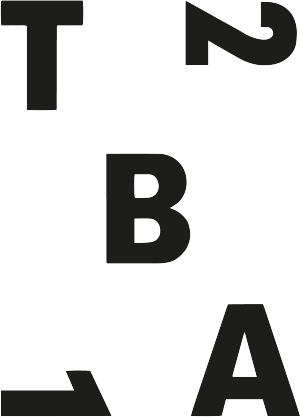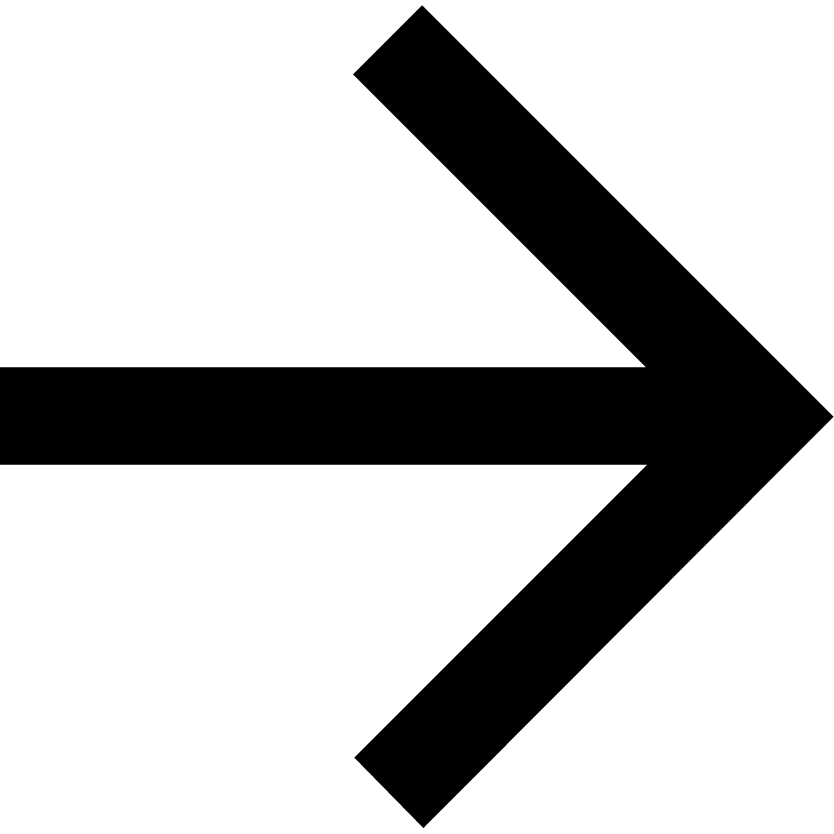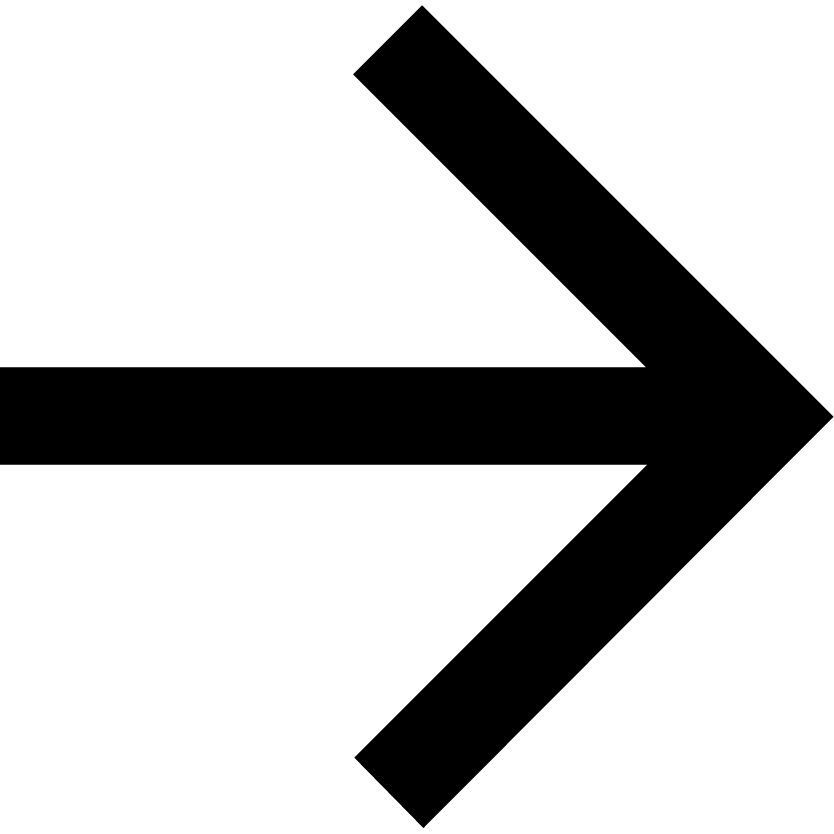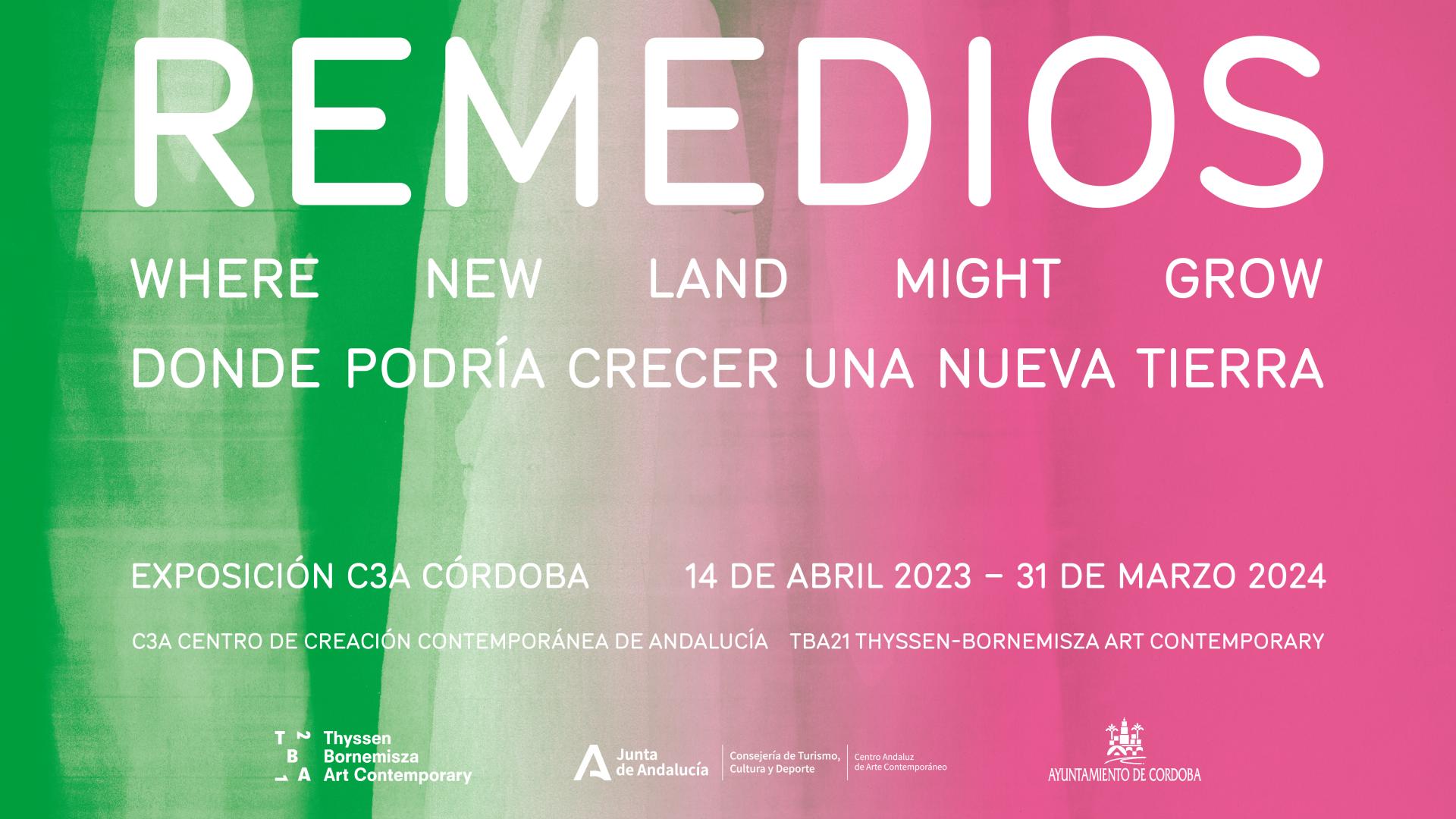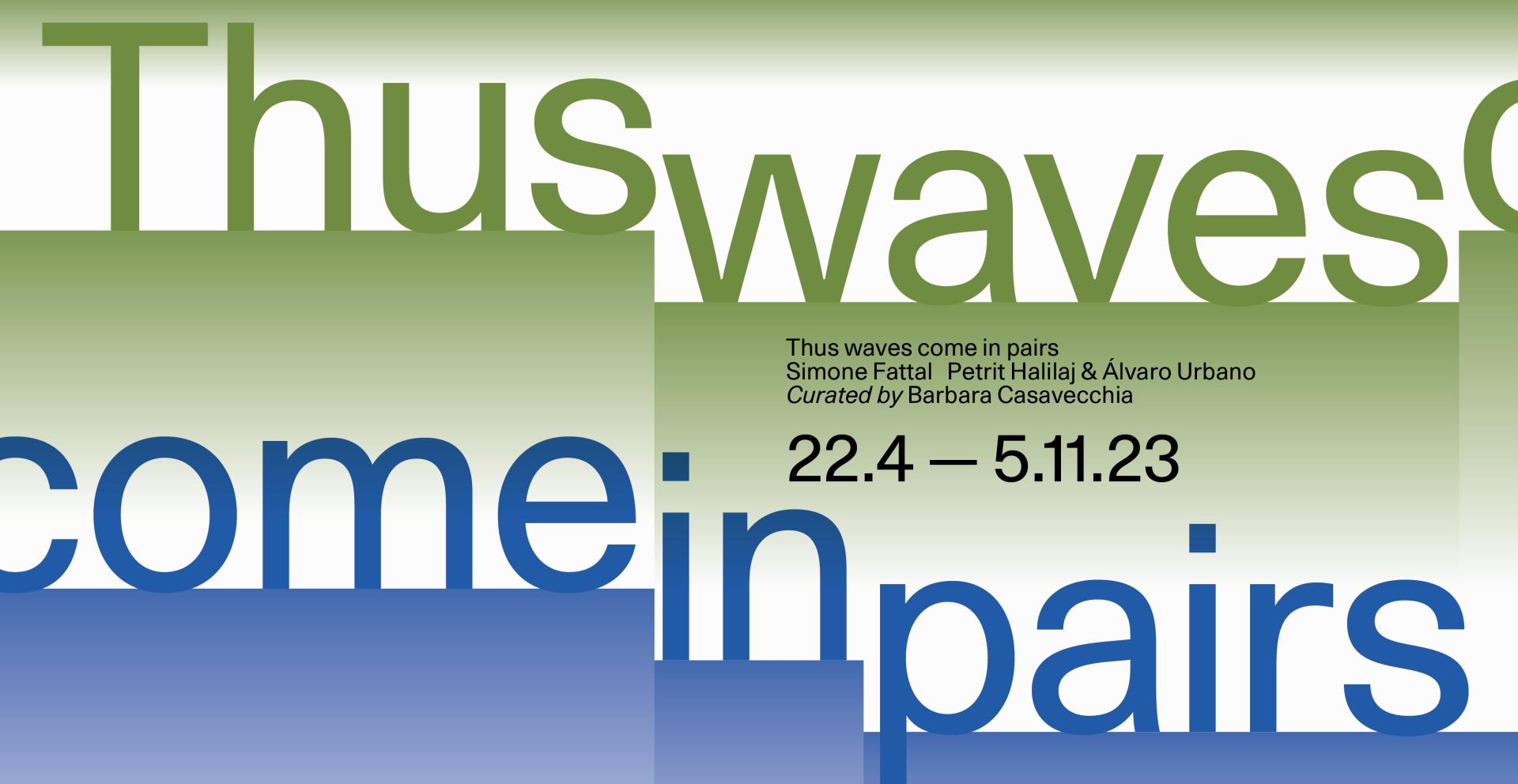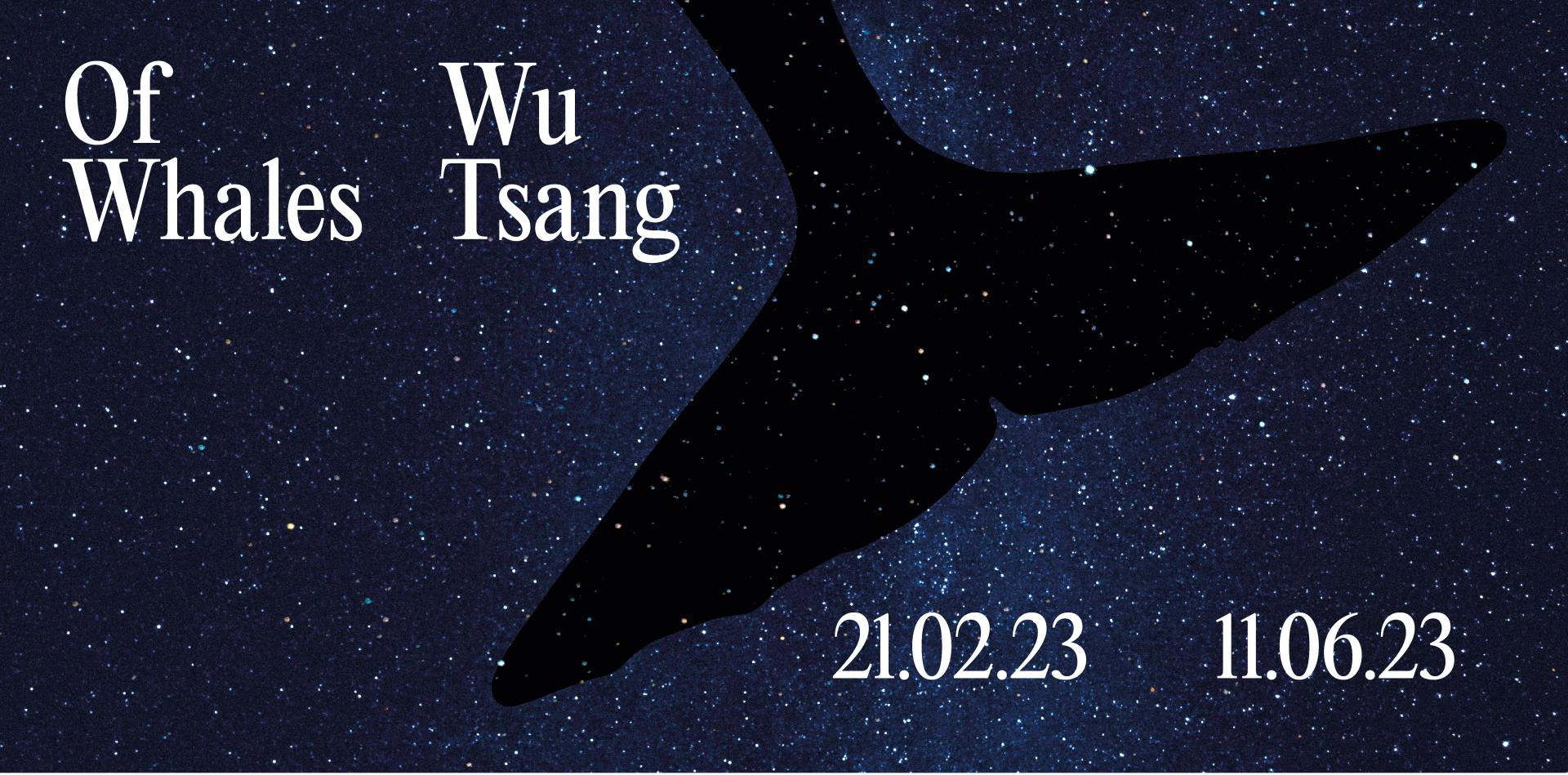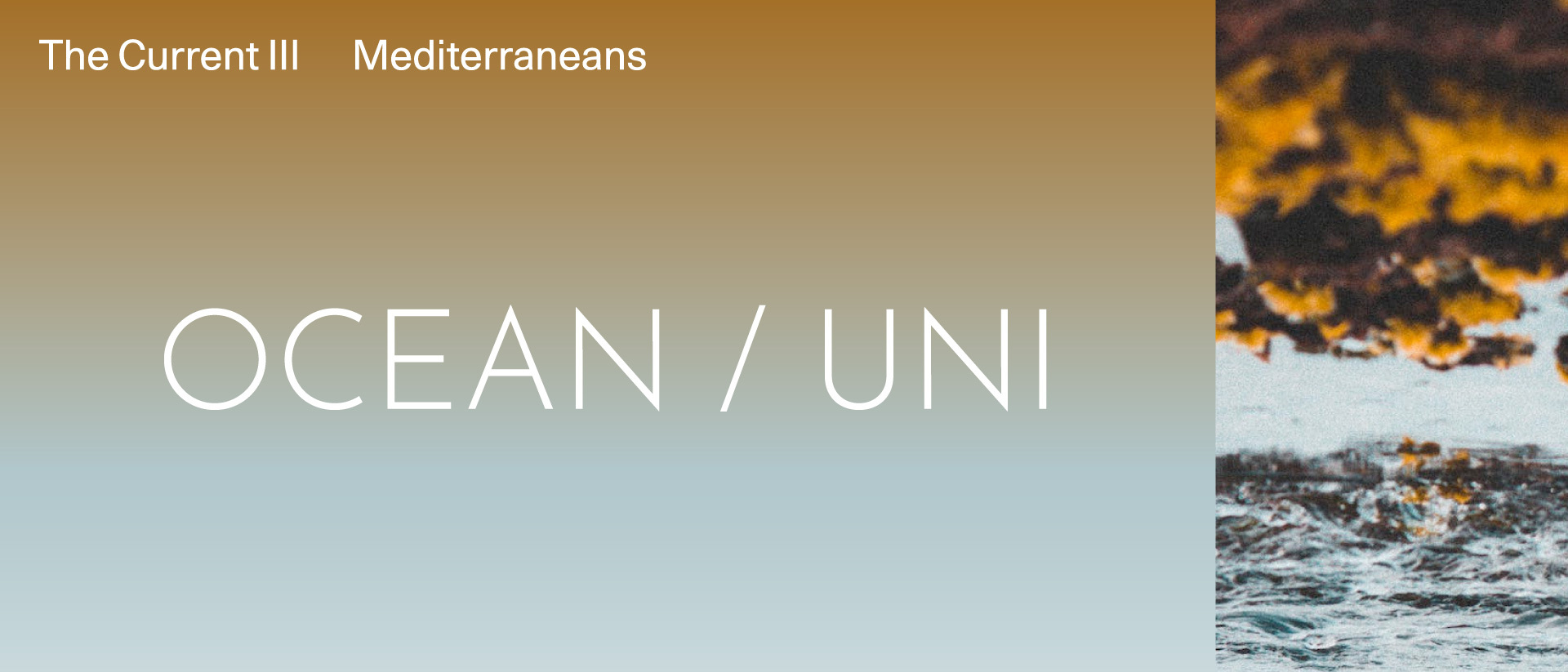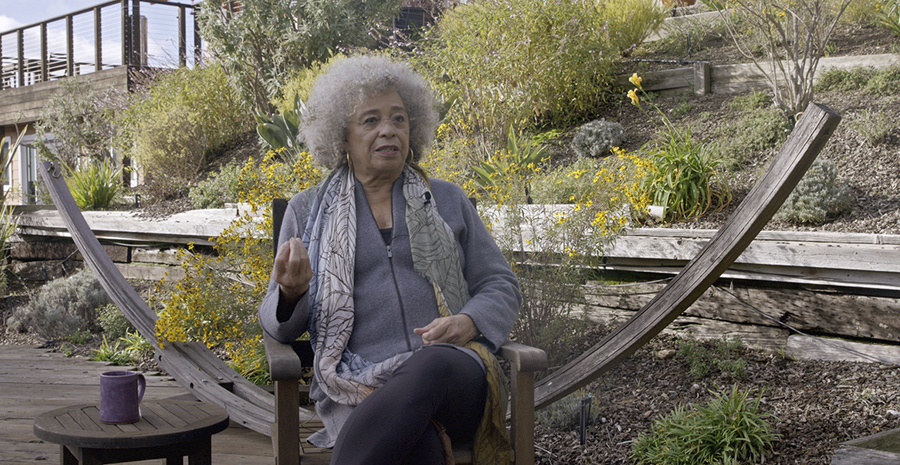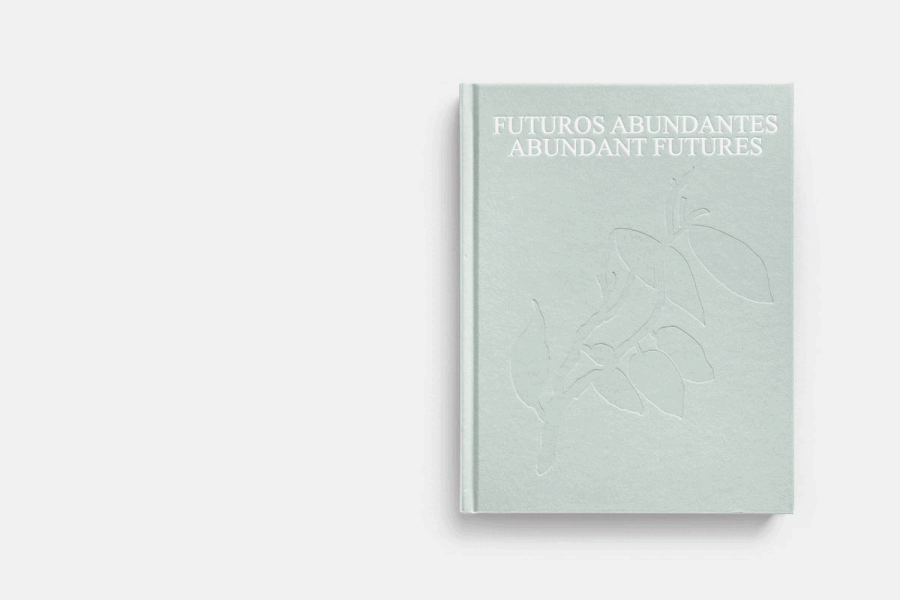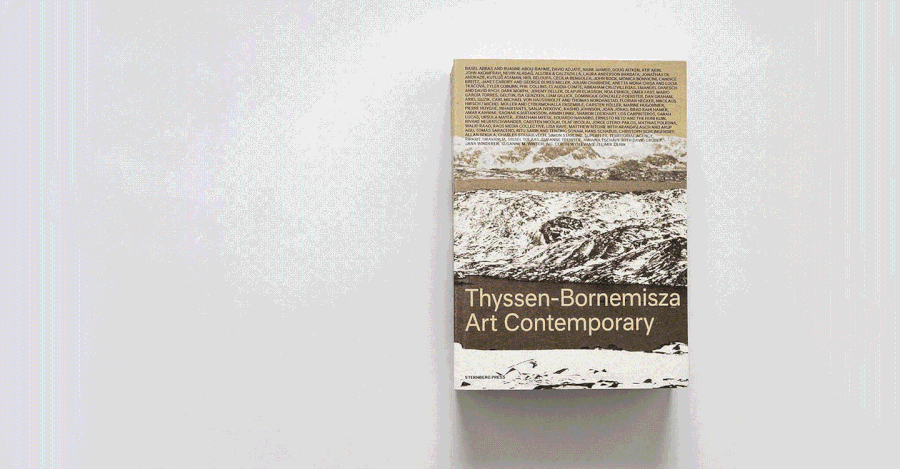“Imagine the Ocean Dry as Lavender”
~ Second Cycle ~ The Mediterraneans Beyond Aridity
February 1 –
April 5, 2023
Zoom, Ocean-Archive.org & ocean comm/un/ity
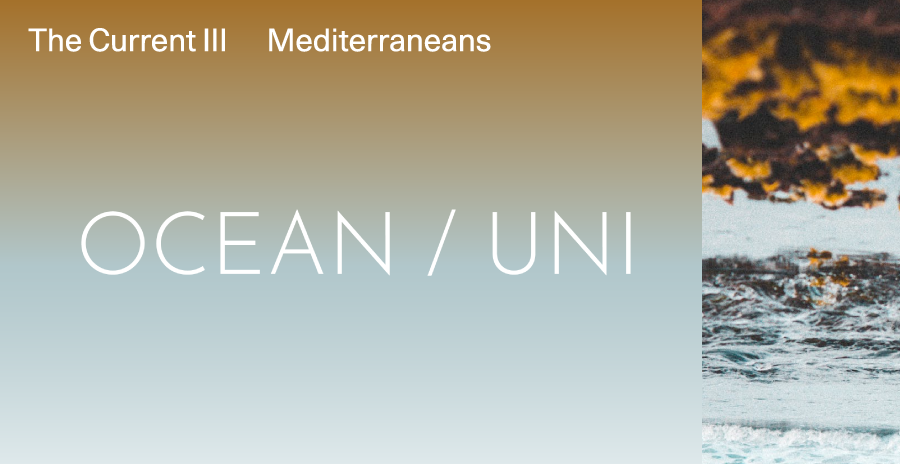
Graphic design: Lana Jerichová.
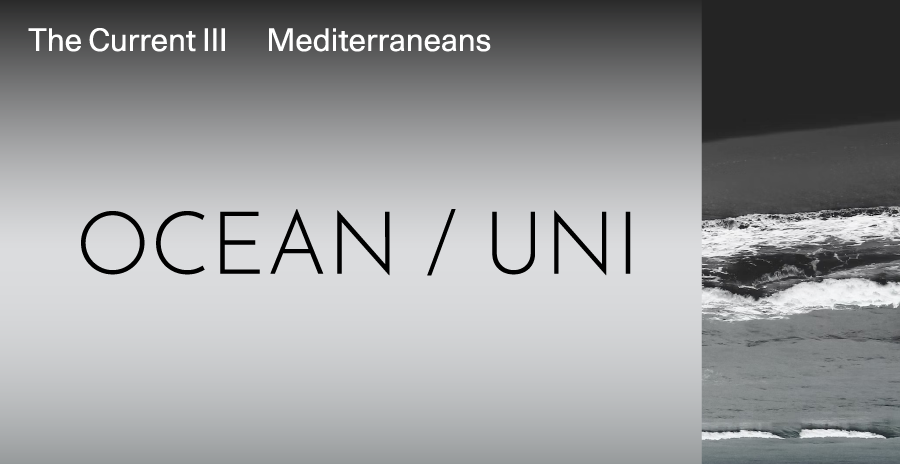
Graphic design: Lana Jerichová.
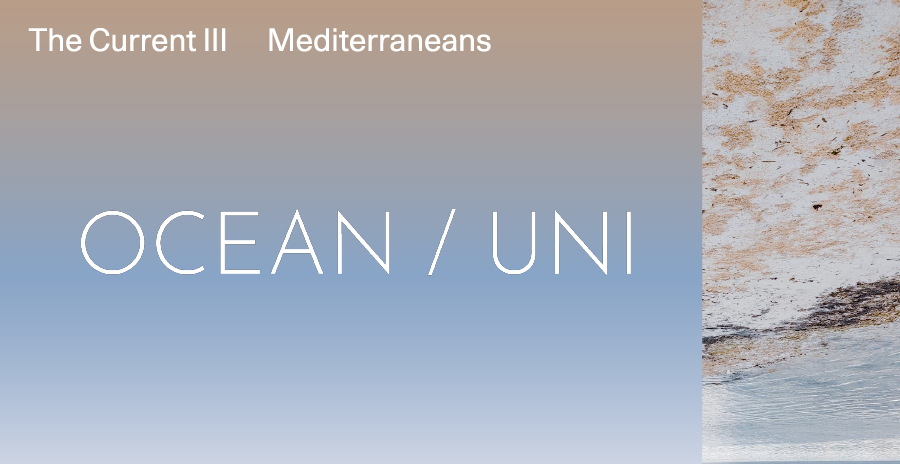
Graphic design: Lana Jerichová.
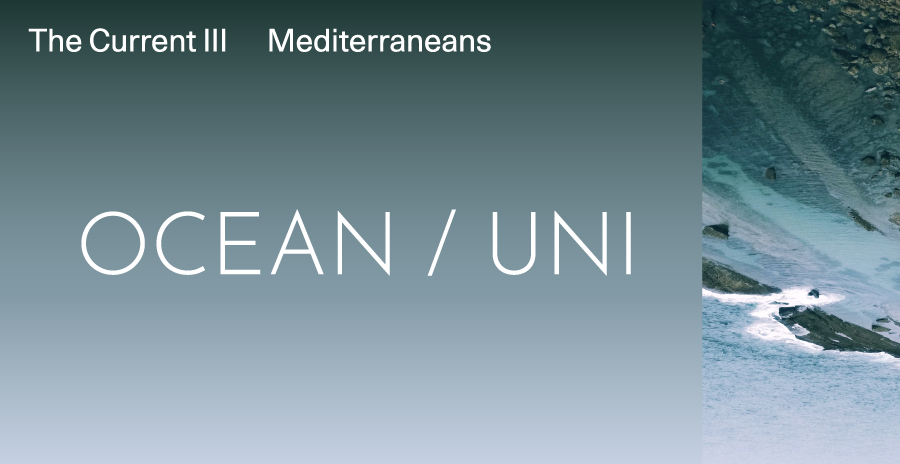
Graphic design: Lana Jerichová.
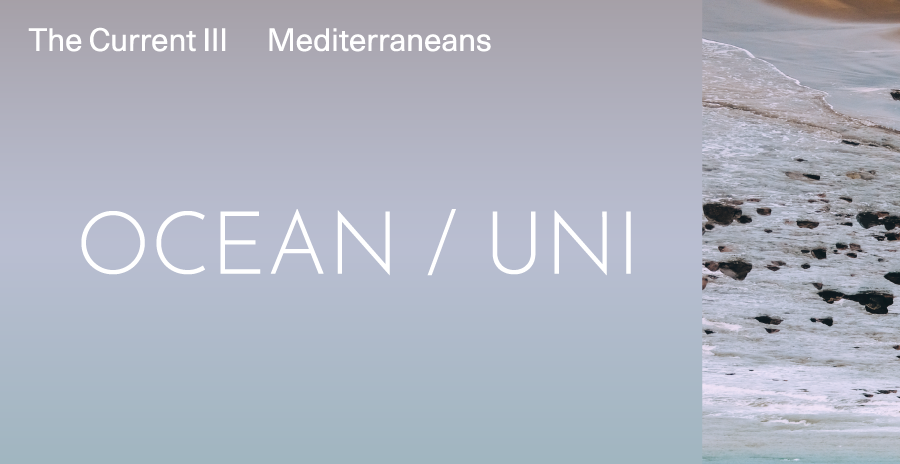
Graphic design: Lana Jerichová.
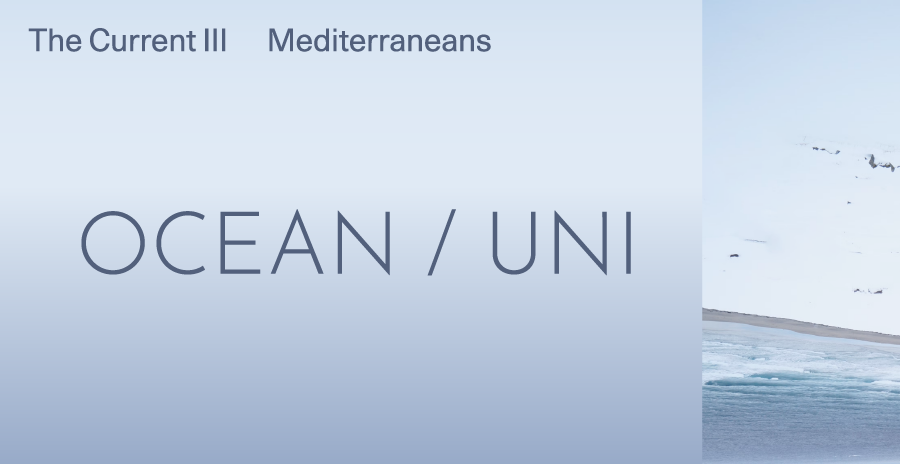
Graphic design: Lana Jerichová.
Current
TBA21–Academy
Programming
The second cycle of "Imagine the Ocean Dry as Lavender"[1] brings OCEAN / UNI back to the Mediterraneans and their warming seas as hotspots for highly interconnected climate risks. The program is developed by TBA21–Academy in collaboration with the research-based curatorial platform EX NUNC. In its first iteration, "Imagine the Ocean Dry as Lavender" focused on the topic of aridity in relation to the Mediterranean Sea and, by extension, to other parts of the world undergoing processes of aridification and "mediterraneization", so to imagine possible planetary scenarios in a rapidly heating climate. During this second cycle, we wish to deepen our enquiry into the connections between climate politics and the ever-renewing processes and modes of coloniality in the Mediterraneans.
In 2022, millions of inhabitants along Mediterranean shores experienced one of the driest and hottest years in centuries. In its Sixth Assessment Report released in April 2022, for the first time the IPCC framed the Mediterranean Basin as a single area with common characteristics and facing a shared emergency, instead of splitting it among different continents.[2]
Desertification keeps on expanding, above and below water. From these amphibious perspectives, we see how the Ocean and the hydrosphere figure a continuum of constant interaction with dry lands, rather than a dichotomy. This understanding invites us to reshape and adapt our narratives, to think with the desert as a place of resilience and adaptation that responds to its ebbing reserves of freshwater, instead of a barren space, devoid of life and inhabitants, that needs to be forcibly regreened, repopulated, and made "productive". Scholar Samia Henni calls for a fight against the so-called "regime of emptiness,"[3] the Eurocentric imagination of desert as inherently deprived, of life and knowledge alike. The empty desert trope responded to the needs of the historical colonial project, which continues to mutate its choreographies of exploitation, extraction, and erasure in contemporary times.[4] Can an analysis of Mediterranean cases help us to recognize the impacts of geoengineering, and to identify neo-colonial continuities in the theory and practice of ecological modernization, while looking for nature-based solutions and micro-refuges?
"Desert and desertification are two key concepts that cut across the fields of philosophy, literature, ecology, politics, and the arts. Their identities are unstable, dynamic, unfixed, and sometimes contradictory, although they are major contemporary figures haunting our imaginaries and defining current politics in relation to ecology," write Ida Soulard, Abinadi Meza and Bassam El Baroni in their book Manual for a Future Desert (2022).[5] With the help of artists, scholars, scientists, activists, and thinkers, this semester keeps on exploring the interconnections between wet ontologies and dry spaces, trying to frame a vision that fits both the desert and the Ocean, projecting this key relationship into a collective space of research. We aim to bring specific visions — both highly localized and planetary — onto shared ground, where aridity is felt as a space of possibility for our common futures.
In 2022, millions of inhabitants along Mediterranean shores experienced one of the driest and hottest years in centuries. In its Sixth Assessment Report released in April 2022, for the first time the IPCC framed the Mediterranean Basin as a single area with common characteristics and facing a shared emergency, instead of splitting it among different continents.[2]
Desertification keeps on expanding, above and below water. From these amphibious perspectives, we see how the Ocean and the hydrosphere figure a continuum of constant interaction with dry lands, rather than a dichotomy. This understanding invites us to reshape and adapt our narratives, to think with the desert as a place of resilience and adaptation that responds to its ebbing reserves of freshwater, instead of a barren space, devoid of life and inhabitants, that needs to be forcibly regreened, repopulated, and made "productive". Scholar Samia Henni calls for a fight against the so-called "regime of emptiness,"[3] the Eurocentric imagination of desert as inherently deprived, of life and knowledge alike. The empty desert trope responded to the needs of the historical colonial project, which continues to mutate its choreographies of exploitation, extraction, and erasure in contemporary times.[4] Can an analysis of Mediterranean cases help us to recognize the impacts of geoengineering, and to identify neo-colonial continuities in the theory and practice of ecological modernization, while looking for nature-based solutions and micro-refuges?
"Desert and desertification are two key concepts that cut across the fields of philosophy, literature, ecology, politics, and the arts. Their identities are unstable, dynamic, unfixed, and sometimes contradictory, although they are major contemporary figures haunting our imaginaries and defining current politics in relation to ecology," write Ida Soulard, Abinadi Meza and Bassam El Baroni in their book Manual for a Future Desert (2022).[5] With the help of artists, scholars, scientists, activists, and thinkers, this semester keeps on exploring the interconnections between wet ontologies and dry spaces, trying to frame a vision that fits both the desert and the Ocean, projecting this key relationship into a collective space of research. We aim to bring specific visions — both highly localized and planetary — onto shared ground, where aridity is felt as a space of possibility for our common futures.
WHO CAN PARTICIPATE
The program is intended for anyone eager to deepen their relations with the ecological, political, aesthetic, ethical, and scientific knowledges around the realities and futures of the Ocean. Lectures will be held in English, so a good listening and speaking level is recommended to ensure meaningful exchange.
Participants are required to register for their attendance to the program online via Zoom. Due to limited capacity, applicants will be selected on a first-come, first-served basis. You are welcome to register in advance for more than one session. If you attend five sessions or more, you will receive an official certificate of attendance.
REGISTRATION FORM HERE.
Participants are required to register for their attendance to the program online via Zoom. Due to limited capacity, applicants will be selected on a first-come, first-served basis. You are welcome to register in advance for more than one session. If you attend five sessions or more, you will receive an official certificate of attendance.
REGISTRATION FORM HERE.
ACTIVATIONS
The Activations that will unfold throughout this semester are conceived as a continuous series of workshops specifically developed by QANAT collective (Morocco/Palestine). More detailed information and the sign up procedure will be announced contextually with the Prologue on February 1, 2023.
ABOUT OCEAN / UNI
OCEAN / UNI is an art–activism–law–science learning initiative, online, tuition-free, and open to the general public. The program’s curriculum invites fluid thinking with the Ocean as a way to move toward more amphibious actions, beyond the binaries of land and sea. Aiming to complement and enhance land-based understanding of the Earth, it covers a wide range of ecological, political, aesthetic, ethical, and scientific topics around the realities and futures of the Ocean.
FOOTNOTES
[1] The title is borrowed from the incipit of a poem by Andrée Chedid, Egyptian-French poet and novelist who lived between 1920 and 2011. See: Andrée Chedid, "Imagine", 1968, in Textes pour un poème, Flammarion, 2014, p. 259. Translated into English by Kamal Boullata in Women of the Fertile Crescent: An Anthology of Modern Poetry by Arab Women, Kamal Boullata (ed.), Three Continents Press, 1978, p. 7.
[2] The Intergovernmental Panel on Climate Change (IPCC), a body of the United Nations created in 1988, aims to advance scientific knowledge about climate change caused by human activities. It coordinates global research efforts and informs governments about the possible natural, economic, and social impacts and risks of climate change, also covering possible response options. Between 1990 and 2022, the IPCC has published six comprehensive assessment reports (AR), the last of which (AR6) will be completed in the Spring of 2023 with the publication of the synthesis report. For the full in-depth report on the Mediterranean region see: IPCC, AR6, WG2, Cross-chapter 4 “Mediterranean Region” (pp. 2235 - 2256). Accessible online HERE.
[3] Samia Henni (ed.), Deserts are not Empty, New York: Columbia Books on Architecture and the City, 2022
[4] On these topics, see: Diana K. Davis, Of Deserts and Decolonization: Dispelling Myths About Drylands, The MIT Press Reader, 2020
[5] Ida Soulard, Abinadi Meza and Bassam El Baroni (ed.), Manual for a Future Desert, Nantes: Mousse Publishing, 2021.
[1] The title is borrowed from the incipit of a poem by Andrée Chedid, Egyptian-French poet and novelist who lived between 1920 and 2011. See: Andrée Chedid, "Imagine", 1968, in Textes pour un poème, Flammarion, 2014, p. 259. Translated into English by Kamal Boullata in Women of the Fertile Crescent: An Anthology of Modern Poetry by Arab Women, Kamal Boullata (ed.), Three Continents Press, 1978, p. 7.
[2] The Intergovernmental Panel on Climate Change (IPCC), a body of the United Nations created in 1988, aims to advance scientific knowledge about climate change caused by human activities. It coordinates global research efforts and informs governments about the possible natural, economic, and social impacts and risks of climate change, also covering possible response options. Between 1990 and 2022, the IPCC has published six comprehensive assessment reports (AR), the last of which (AR6) will be completed in the Spring of 2023 with the publication of the synthesis report. For the full in-depth report on the Mediterranean region see: IPCC, AR6, WG2, Cross-chapter 4 “Mediterranean Region” (pp. 2235 - 2256). Accessible online HERE.
[3] Samia Henni (ed.), Deserts are not Empty, New York: Columbia Books on Architecture and the City, 2022
[4] On these topics, see: Diana K. Davis, Of Deserts and Decolonization: Dispelling Myths About Drylands, The MIT Press Reader, 2020
[5] Ida Soulard, Abinadi Meza and Bassam El Baroni (ed.), Manual for a Future Desert, Nantes: Mousse Publishing, 2021.
